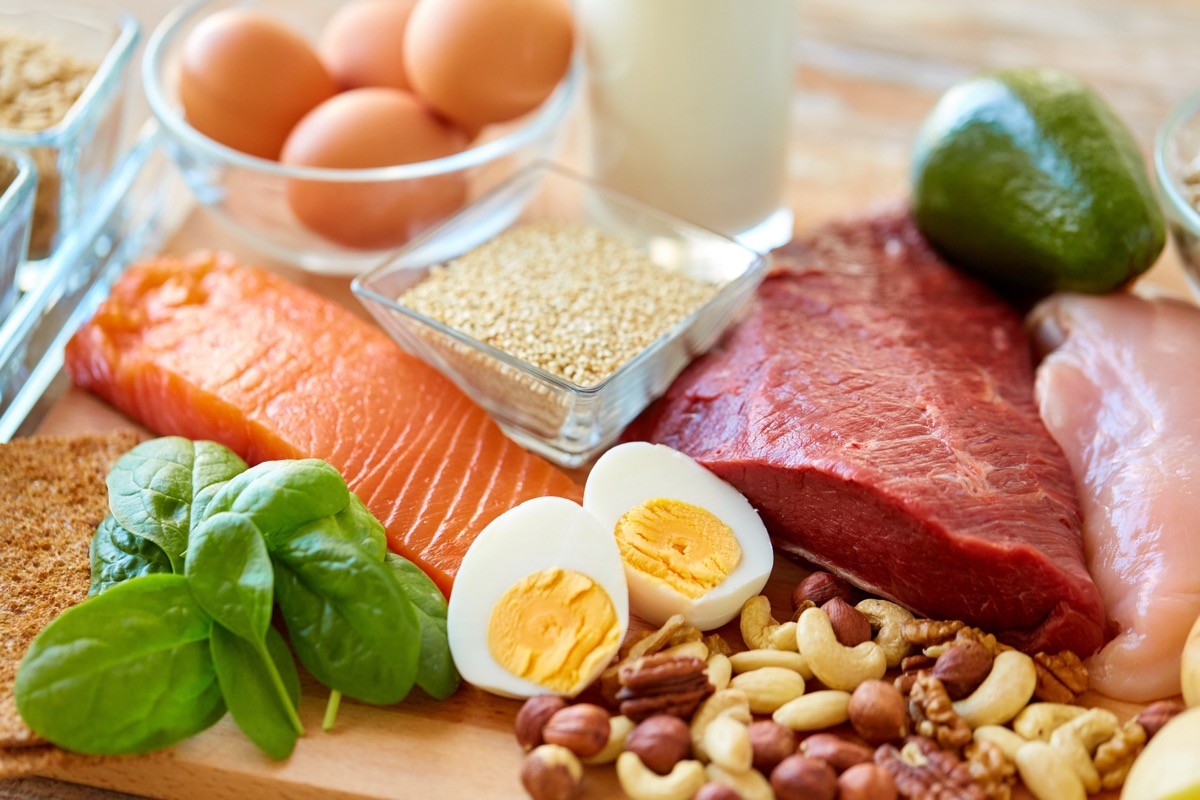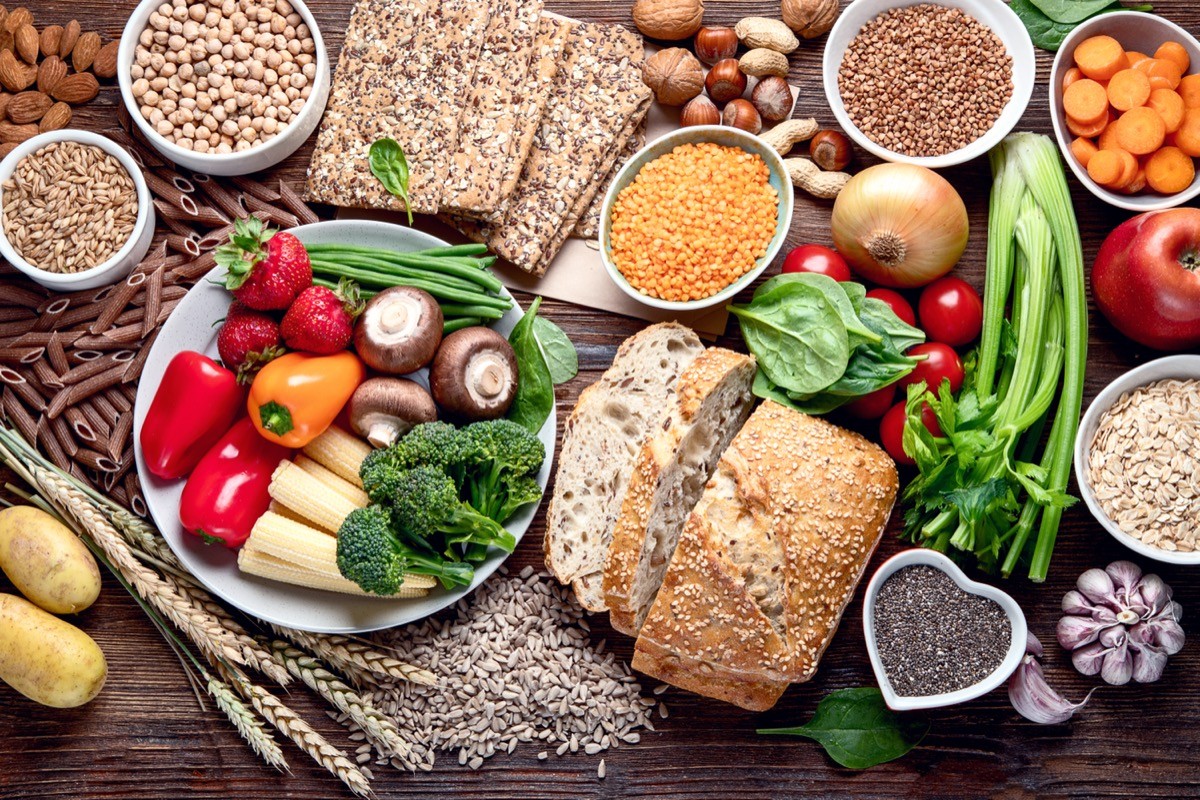8 Surprising Reasons You’re Not Losing Weight—And How to Fix Them

If you’ve ever tried to drop pounds on your own, you know that it can be a struggle. You have to be mindful of your calorie intake, suppressing those pesky cravings while also upping your daily exercise. But even when you feel like you’re doing everything right, sometimes the scale just won’t budge, which can leave you frustrated and wondering, “Why am I not losing weight?” While it’s tempting to give up when you’re not seeing progress, be aware that there are many surprising reasons people can’t lose weight.
“Body weight is complex, and therefore can be challenging to manage,” Karla Robinson, MD, medical editor at GoodRx, tells Best Life. “Weight management is determined by a lot of factors… To effectively lose weight, someone needs to build habits that address all of the factors that may be contributing to their excess weight. And this can be hard to do.”
If you’re curious about what’s holding you back from achieving your goals, you’re not alone. Read on to find out what nutritionists and doctors say are the 10 common reasons people struggle to lose weight.
RELATED: If You Want to Lose Weight, “Avoid These Foods Like the Plague,” Fitness Expert Says.
1
You’re not eating enough protein.

Protein is essential for weight loss because it’s highly satiating, helping you feel full and satisfied. Also, you may be more prone to cravings and overeating if you’re not getting enough protein.
While the average healthy adult needs at least 0.8 grams of protein per kilogram of body weight daily, the amount of protein required for weight loss will vary depending on your individual needs and goals.
Trista Best, RD, a registered dietitian with Balance One Supplements, tells Best Life, “There’s no one-size-fits-all answer to how much protein you should eat for weight loss. However, a common recommendation is to aim for 1.2 to 1.6 grams of protein per kilogram of body weight per day. This equals about 15 to 20 percent of your daily calorie intake.”
2
Or your diet lacks fiber.

Nichole Dandrea-Russert, MS, RDN, author of The Fiber Effect and nutritionist at Purely Planted, says ensuring your diet consists of enough fiber is critical to weight loss.
“Over 95 percent of Americans don’t consume the recommended amount of fiber daily,” she says. “Fiber prevents constipation and can assist with weight management because of its ability to fill you up quickly and keep you full longer. Fiber is also critical for gut health and helps produce short-chain fatty acids in the colon through feeding healthy bacteria in our gut.”
In fact, a recent study found that higher fiber intake was associated with weight loss, Dandrea-Russert points out.
RELATED: This Food Can Trigger a 15% BMI Weight Loss—But You’re Probably Not Eating It.
3
You don’t get enough rest and relaxation.

When tired or stressed, you’re more likely to give in to cravings and indulge in unhealthy, high-calorie foods. In fact, lack of sleep and stress have been found to increase your risk of obesity and metabolic diseases.
“The effects of chronic stress are very similar to the effects of sleep deprivation on weight loss because, like lack of sleep, chronic stress causes elevations in cortisol that can affect insulin and your body’s ability to burn fat instead of store it,” explains Amy Killen, MD, a regenerative medicine physician and medical advisor at Joi Women’s Wellness.
“Getting at least seven to nine hours of quality sleep a night can positively impact your body’s metabolism and help regulate the hormones that let your body know you’re hungry throughout the day,” adds Robinson.
To help improve your sleep and aid in your weight loss efforts, Killen suggests avoiding screens an hour before bed, not eating within two hours before bed, and sleeping in a cool, dark room.
“Practices like guided meditation, breathwork, nature walks, and journaling can go a long way in helping to keep stress at bay,” she adds.
4
You’ve been weight cycling.

If you’ve lost and regained weight often over the years—a process known as “weight cycling”—you might not see progress anymore, explains registered dietitian Emily Van Eck, RD.
“The more times one loses and gains back a significant amount of weight, the more at risk they are for cardiometabolic problems like insulin resistance, raised cholesterol, and loss of lean body mass, not to mention increased weight,” she says.
Karen Louise Scheuner, RDN, intuitive eating and body image coach, also points to yo-yo dieting and weight cycling.
“This decreases the metabolism with each subsequent diet, [and] the body becomes more efficient at storing fat for survival, as dieting is a threat to our system that will fight against starvation/famine,” she notes. “This makes losing weight very challenging, if not impossible for some folks, particularly chronic dieters.”
RELATED: Adding 2 Key Things to Your Diet Can Help You Lose Nearly 13% of Body Weight, Study Shows.
5
Or trying out fad diets.

We’ve all been there: We see an ad for a new weight-loss program that touts “amazing results.” But these trendy diets can actually create bigger problems, especially if they force you to limit or be selective with your food groups.
“Diet fads don’t work because they’re often restrictive; they typically don’t advocate for healthy lifestyle changes; and they can encourage the omission of whole food groups, like carbohydrates,” says Dandrea-Russert. “Instead of omitting carbohydrates altogether, it’s important for consumers to understand that the type of carbohydrate matters.”
Dandrea-Russert notes that the carbs in a can of soda don’t have a nutritional benefit, but “carbohydrate-rich whole foods” can move you closer to your goals.
“Bottom line: Don’t ditch the carbs! Instead, consume whole food sources of carbohydrates that deliver plenty of nutrition to support weight management, like whole grains, fruit, and legumes,” she says.
6
You skip meals.

It may seem counterintuitive, but not eating enough calories can be a significant roadblock to weight loss.
For example, a large cohort study published in Nutrients in 2021 examined the association between skipping meals and weight gain in over 26,000 university students in Japan. The researchers found that skipping meals was linked to significant weight gain, as those who didn’t eat dinner had a greater than 10 percent weight gain.
“Skipping meals can cause your body to go into a starvation mode, which slows down your metabolism, leading to weight gain rather than weight loss,” explains Best. “Rather than skipping meals, consider eating mini-meals four or five times a day. This can keep your metabolism going without the need for the traditional large, time-consuming meals.”
RELATED: 6 Best Walking Workouts for Weight Loss.
7
You’re not strength training.

We don’t have to tell you that as we age, it gets more difficult to lose weight—but you might be surprised about some of the reasons why.
“The older you get, the less muscle mass you carry on your body,” Robinson says. “Lower muscle mass can cause your metabolism to slow down and retain fat.”
One way to combat this is by incorporating more strength training to “build and retain muscle,” she suggests.
8
You’re not setting yourself up for success.

There are other deterrents to weight loss that don’t have to do with your diet or workout routine—and one of them is not creating a healthy environment for success.
“We can’t help that everywhere we go we see processed foods, food advertisements, snack foods, etc., but we can help what we choose to bring into our home. Make your home your safe zone and keep trigger foods out,” suggests Valerie Dickerson, RD, a dietitian at Structure House.
“Surround yourself with a variety of healthy foods and keep them front and center in your fridge/pantry,” she recommends. “Make a list of healthy takeout/restaurant options so you don’t get overwhelmed with cooking.”
But if you do slip up, try not to let it derail your motivation (we’re all human!).
“Even with the best of plans, no one eats perfectly healthy 100 percent of the time. Just get back on track at the next meal and move onward,” says Dickerson.